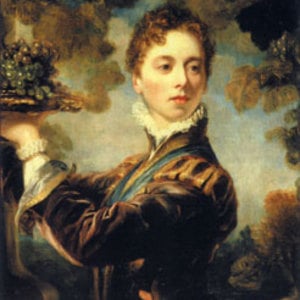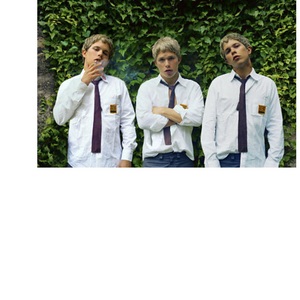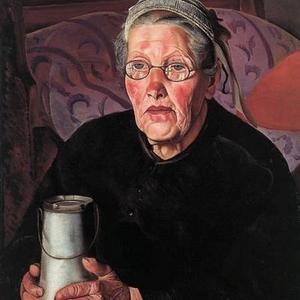Byron sat in a chair outside the headmaster’s study. He was not afraid. He was outraged. He’d already written a letter to his mother. He’d demanded that she withdraw him from school. Immediately. Mark Drury had called him a blackguard. What further evidence did she need that the situation was intolerable for him? As he waited for the door to open and to be called inside, the headmaster’s wife approached from a different door.
“Are you all right? I suppose Dr Drury will be with you in a moment.”
Byron struggled to his feet. “Mrs. Drury,” he managed to say in a choked voice. The school was filled with Drurys. Mark Drury, who’d reprimanded him before the whole school, was the headmaster’s son. The head himself, Dr. Drury, Byron had some respect for, as he was after all a doctor of divinity. Byron’s mother respected titles, and though there were many things about which he thought his mother foolish, Byron respected titles too.
Mrs. Drury for her part had had her eye on Byron from the start. She remembered the day he arrived, already several years ago. She’d seen him tacking back and forth across the steep incline of the hill that led up to Harrow. He couldn’t walk straight up. His limp and his thick-heeled boot he had to cope with at so young an age, had both gone straight to her heart. She came from a seagoing family. To watch him straining up the hill had reminded her of a ship adrift in a storm, without a rudder or a compass. “May I bring you some water?” she offered. “A cup of tea?”
“No, thank you,” said Byron.
She could see his wounded pride. “How is your mother?”
“I’ve written her a letter. I don’t think I’ll be here much longer.”
“Oh?”
“I expect she’ll withdraw me. Any day now.”
“I’m sorry to hear that.”
This gave Byron pause. He didn’t think any of the Drurys gave a fig about him. The other boys didn’t like him. He assumed there was general indifference to him among the masters too.
“Mark Drury says you have a talent in translating from Latin verse that the other boys don’t have.”
“He what?”
“He foresees great things for you.”
Byron could hardly say to Mark Drury’s mother that he didn’t believe that.
“So I know he’d be sad to see you go.”
Byron sniffed. “It’s out of my hands now.”
“And I should be sad to see you go too.”
Byron looked at her more carefully. She looked ancient to him. She wore a shapeless woolen dress. She had on a pair of round, rimless spectacles. There were streaks of gray in the hair pulled back behind her head in a bun. He assumed she was ancient. Before now she’d been nearly invisible to him, so little had he paid her attention. Now, though, he could see she was being kind to him. He could feel it from her manner to him as well as from her words. “Thank you,” was all he could think of to say, though it seemed wrong and inadequate the moment he said it.
Mrs. Drury was in fact 36 and she’d been keeping an eye on Byron throughout the time of what he regarded as his lonely, unobserved, interior struggles. “And apart from everything else, I imagine Lord Clare would miss you.”
“What?” This was the first indication he’d had that anyone had noticed he and Clare were becoming friends. He felt exposed. He felt embarrassed. He felt pleased. His ears grew hot.
The headmaster’s door then opened with a creak. A long lozenge of light fell on to the oriental rug at Byron’s feet. Dr. Drury was older than his wife. His hair was thinning. He too had on round, rimless spectacles. “My dear,” he said to his wife, a little surprised to find her there. Then he looked at Byron standing by his chair. “Oh, and Lord Byron too,” he said, as if it were a double surprise to find him there too. “Come in, boy.” He swept Byron toward the open doorway with an encouraging wave of his hand.











Comments (2)
See all